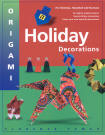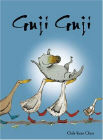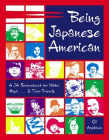|
The AACP Newsletter |
||
| Since 1970 | Asian American Curriculum Project, Inc. - Books for All Ages | November/December 2004 |
| Newsletter Home Page | Event Schedule | AsianAmericanBooks.com | Editor's Notes | Featured Books |
At a GlanceNovember Was National Novel Writing Month
AACP's Poetry Month and Day
Are We Losing the War?
|
|
||
|
No, Not that One An Editorial by Leonard Chan |
|
|
The war that I am referring to is the war on ignorance. The title came to me shortly after the election when I heard someone make a comment on TV about how he voted and why. From my perspective, his reasoning seemed to be based on fictitious notions. How did he arrive at such a conclusion? Was he one of the ignorant voters that I discussed in my last editorial? By his statement, I could tell that he did not solely base his vote on what the candidates said - neither of the candidates openly endorsed the position that he attributed to one of them. Perhaps he was persuaded by an advertisement, radio program, or friend that I did not see or hear. Could it be that I heard the same messages but did not believe them? Perhaps I was being manipulated by messages this person did not hear or believe. Elections can be seen as a measure of our ignorance level, our ability to think, and our gullibility to marketing. Whatever the case, there are people studiously analyzing the results of the election. They, like their counterparts in commercial advertising, are trying to figure out what works and what doesn't. We are all guinea pigs for these marketing researchers and they are honing their skills and are making improvement for the next time. The PBS show Frontline had an interesting episode, called The Persuaders, that deals with what I'm talking about. Click here to check out the web page for this show. In brief, people are using scientific methodology to try to determine how we make decisions and how they can influence our decision making process. We should all hope that the eventual holders of such knowledge will use their talents for benevolent purpose or that the attainment of this knowledge will never be reached. Such knowledge in the wrong hands could make Yellow Peril and Nazi propaganda look amateurish and make science fiction stories, portraying totalitarian states ruling over the ignorant masses, more true than ever. Throughout human history there are many examples where people were lead to do bad things. Even in supposedly freethinking countries as our own, we have had times when wrongs had been done. Many of these wrongs could not have taken place without support from the masses. If you've been a regular reader of our editorials and articles, you will note the many wrongs that I have brought to your attention regarding the treatment of Asian and other minorities in America. If the art of persuasion can be transformed into a science and knowing the nature of man, what is there to prevent even worse atrocity from taking place? The world and the people on it are seldom black and white - there are many shades of gray. So it is impossible to determine the nature of the people behind the curtain. I am certain that these researchers do not all think alike and do not all have evil intent. There are no conspiracies or joint efforts to deceive us, only a concerted effort to determine how we think and how they can influence are thinking. So how do we combat such forces? Should we be resisting? Perhaps we could live in ignorant bliss and leave the decision-making up to our rulers… Wait, didn't I just write in my last editorial against such thinking? Since we can never really know everything, the war on ignorance can never completely be won, but it can be lost. Many of history's dark ages were cases of when societies slipped back into states of ignorant subjugation. The best that we can do is maintain a constant vigil - keeping ignorance at bay. We do this by never relinquishing our thirst for knowledge and by making our educational institutions better. Armed with our knowledge, we must also learn to use it wisely and compassionately for all the inhabitants of the Earth. Only then will we be on the winning side of this war. |
by Charles Dickens
"Oh, Man" look here. Look, look, down here!" exclaimed the Ghost. They were a boy and girl. Yellow, meager, ragged, scowling, wolfish; but prostrate too in their humility. Where graceful youth should have filled their features out, and touched them with its freshest tints, a stale and shriveled hand, like that of age, had pinched and twisted them into shreds. Where angels might have been enthroned, devils lurked and glared out, menacing. No change, no degradation, no perversion of humanity in any grade, through all the mysteries of wonderful creation, has monsters half so horrible and dread. Scrooge started back, appalled. Having them shown to him this way, he tried to say they were fine children, but the words choked themselves, rather than be party to lies of such enormous magnitude. "Spirit! are they yours?" was all that Scrooge could utter. "They are Man's," said the Spirit, looking down upon them. "And they cling to me, appealing from their fathers. This boy is Ignorance. This girl is Want. Beware them both, and all of their degree, but most of all beware this boy, for on his brow I see that written which is Doom, unless the writing be erased. Deny it!" cried the Spirit, stretching out its hand towards the city. "Slander those who tell it ye! Admit it for your factious purposes, and make it worse! And abide the end!" |
|
Each year, legions of ad people, copywriters, market researchers, pollsters, consultants, and even linguists—most of whom work for one of six giant companies—spend billions of dollars and millions of man-hours trying to determine how to persuade consumers what to buy, whom to trust, and what to think. Increasingly, these techniques are migrating to the high-stakes arena of politics, shaping policy and influencing how Americans choose their leaders. In "The Persuaders," FRONTLINE explores how the cultures of marketing and advertising have come to influence not only what Americans buy, but also how they view themselves and the world around them. The 90-minute documentary draws on a range of experts and observers of the advertising/marketing world, to examine how, in the words of one on-camera commentator, "the principal of democracy yields to the practice of demography," as highly customized messages are delivered to a smaller segment of the market. Take the 2004 presidential sweepstakes for example. Both the Republicans and the Democrats were prepared to go to extraordinary lengths to custom craft their messages. "What politicians do is tailor their message to each demographic group," says Peter Swire, professor of law at Ohio State University and an expert on Internet policy. "That means…Americans will live in different virtual universes. What's wrong with living in different universes? You never confront the other side. You don't have to deal with the uncomfortable facts that go against your worldview….It hardens the partisanship that's been such a feature of recent American politics." |
|
|
Second Chance SALE! Just for Newsletter Subscribers - all books featured in AACP's 2004 Newsletters are once again 20% off. Here's your second chance. But in order for you to take advantage of this chance you must be an AACP email newsletter subscriber. Click Here to Join |
The following books are discounted for subscribers to our newsletter. The discounts on these books end December 31, 2004. | |

|
Origami Holiday Decorations
By Florence Temko |

|
Summer of the Big BachiBy Naomi Hirahara2004, 287 pages, paperback. A spellbinding mystery played out from war-torn Japan to the rich tidewaters of L.A.'s multicultural landscape, this stunning debut novel weaves a powerful tale of family, loyalty, and the price of both survival and forgiveness.
"A novel about social change wrapped inside a mystery, Summer of the Big Bachi toggles deftly between past and present and reveals the hopes and compromises that lurk on the fringes of the American Dream."
View Additional Information
|

|
Guji GujiBy Chih-Yuan Chen2004, 29 pages, hardback. Guji Guji is just your ordinary, everyday, run-of-the-mill duck…um, crocodile…um, duck… In this engaging story about identity, loyalty, and what it really means to be a family, Guji Guji makes some pretty big decisions about who he is, what he is, and what it all means, anyway.
View Additional Information
|

|
When Strange Gods CallBy Pam Chun2004, 283 pages, paperback. Twelve years ago, Miki Ai'Lee walked away from her traditional Chinese heritage, leaving her native Hawai'i behind. Now thirty and unmarried, Miki is a respected art history professor on the mainland. But when her grandmother's illness draws her back to Hawai'i, Miki realizes she has been gone too long. Her first love, Alex, bears scars that he is unwilling to explain, and her grandmother is ready to share their family's darkest secret, if only Miki will listen.
View Additional Information
|

|
Being Japanese American
By Gil Asakawa |
Copyright © 2004 by Asian American Curriculum Project, Inc. (a non-profit organization since 1970)
Visit our website at AsianAmericanBooks.com
To unsubscribe simply reply to this email and type "REMOVE" in the subject line.